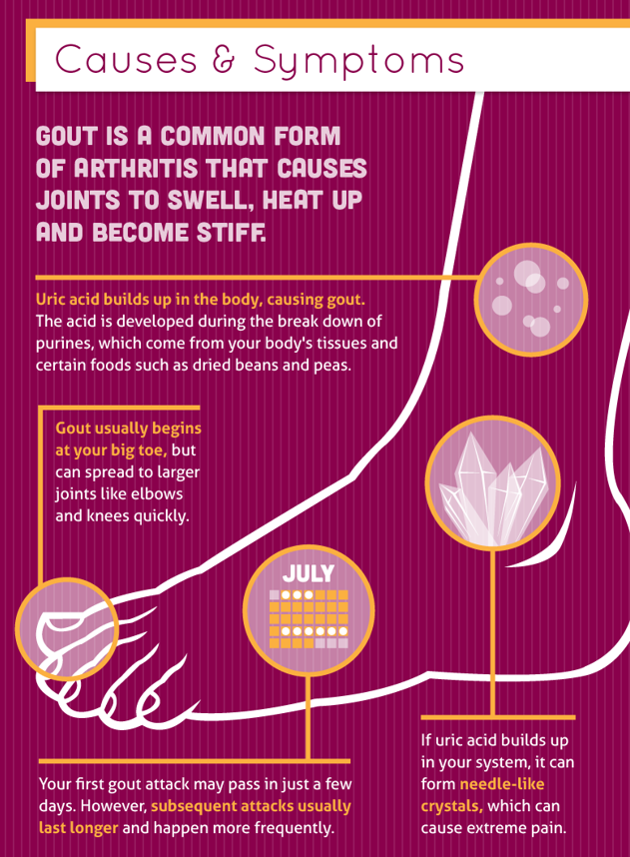Gout Causes
What Causes Gout?
Gout occurs when urate crystals accumulate around your joint, causing the inflammation and intense pain of a gout attack. Urate crystals can form when you have high levels of uric acid in your blood. Your body produces uric acid when it breaks down purines, substances that are found naturally in your body, as well as in certain foods, such as organ meats, anchovies, herring, asparagus and mushrooms.
Normally, uric acid dissolves in your blood and passes through your kidneys into your urine. But sometimes your body either produces too much uric acid or your kidneys excrete too little uric acid. When this happens, uric acid can build up, forming sharp, needle-like urate crystals in a joint or surrounding tissue that cause pain, inflammation and swelling.

The following have been known to bring about a gout attack and may be contributory causes of gout:
- Increase in Uric Acid produced by the body
- Obesity
- Heavy alcohol consumption, especially beer
- A diet high in purine foods, such as seafood and meat, and meat organs
- Regular use of Niacin
- Chronic kidney disease
- Hypertension (high blood pressure)
- Psoriasis
- Tumors
Factors that increase the uric acid level in your body include:
-
Lifestyle Choices
The daily choices you make in your everyday life may increase your risk of gout. For example, diet, exercise and excessive alcohol consumption may increases the risk of gout.
-
Medical conditions and medications
Certain diseases and conditions make it more likely that you'll develop gout. These include untreated high blood pressure (hypertension) and chronic conditions, such as diabetes, high levels of fat and cholesterol in the blood (hyperlipidemia), and narrowing of the arteries (arteriosclerosis). The use of diuretics and low-dose aspirin also can increase uric acid levels.
-
Age and sex
Gout occurs in both men and woman, usually between the ages of 40 and 50. It occurs more often in men than it does in women, primarily because women tend to have lower uric acid levels than men do. After menopause, however, women's uric acid levels approach those of men.
-
Family history of gout
If other members of your family have had gout, then there is a higher possibility you may develop the disease.
